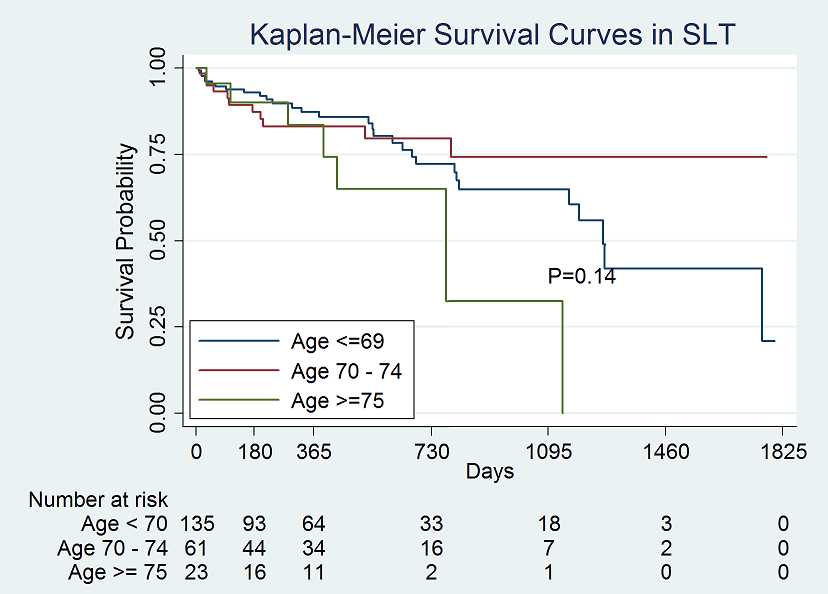Lung Transplantation in the Elderly Patients with Multi-Comorbidities
Temple University Health System / Lewis Katz School of Medicine, Philadelphia, PA
Meeting: 2019 American Transplant Congress
Abstract number: C339
Keywords: Elderly patients, Lung transplantation, Outcome, Surgical complications
Session Information
Session Name: Poster Session C: Lung: All Topics
Session Type: Poster Session
Date: Monday, June 3, 2019
Session Time: 6:00pm-7:00pm
 Presentation Time: 6:00pm-7:00pm
Presentation Time: 6:00pm-7:00pm
Location: Hall C & D
*Purpose: Recently there is an outstanding steadily increase in elderly patients above 70 years old who are referred to our center as potential candidates for lung transplantation. In aging populations, many patients have multiple diseases characterized by acceleration of the normal ageing process such as cardiovascular, metabolic, or chronic kidney disease. Recent remarkable progress in minimally invasive, interventional therapies such as PCI and TAVR enables those who used to be unable to be a candidate due to these co-existing problems to become potentially viable candidates for lung transplantation. However, their impact on transplant outcomes remains unclear. This study aims to evaluate the impact of these outstanding co-morbidities in the elderly patients on posttransplant outcomes and to highlight the challenges that lung transplant physicians are likely to encounter.
*Methods: A retrospective review of 151 patients aged above 70 years who underwent lung transplantation at our center between January 2012 and July 2018 was conducted. Their preoperative comprehensive comorbidities were assessed and compared with those below 69 years old. The incidences of posttransplant complications, short- and long-term outcomes were also reviewed, and prognostic factors were analyzed using a Cox proportional hazard model.
*Results: Among the elderly patients, prior coronary artery disease (29%), high body mass index (BMI: >30, 18%), and peripheral vascular disease (16%) were more common, and 39 patients (26%) had two or more co-morbidities concurrently. Single lung transplant was performed in 109 patients and double lung transplant in 42. Age, prior coronary artery disease, and BMI were associated with selection of single lung transplant. There was no difference in hospital mortality and 1-year survival; however, when they were subgrouped into age above and below 75 years old, the patients above 75 who underwent double lung transplant had the worst 1-year survival (50%). Multi-comorbidities defined by two or more comorbidities was a more significant prognostic factor than the type of the procedure or age or BMI alone in those elderly patients cohort.
*Conclusions: In spite of an increasing number of the elderly patients who are referred for potential candidates for lung transplantation, we need to be cautious in selecting appropriate patients in particular those with multi-comorbidities in order to yield acceptable transplant outcomes as well as their total benefits.
To cite this abstract in AMA style:
Shigemura N, Toyoda Y. Lung Transplantation in the Elderly Patients with Multi-Comorbidities [abstract]. Am J Transplant. 2019; 19 (suppl 3). https://atcmeetingabstracts.com/abstract/lung-transplantation-in-the-elderly-patients-with-multi-comorbidities/. Accessed February 21, 2026.« Back to 2019 American Transplant Congress

